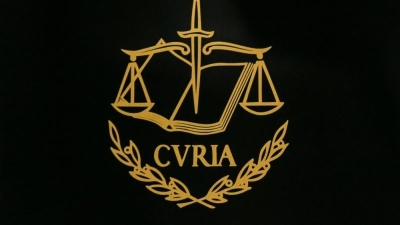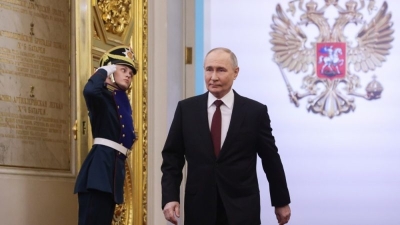Thierry Breton says European Space Law might be presented after the summer

Internal Market Commissioner Thierry Breton told Members of the European Parliament on Tuesday (9 April) that the Commission will need “extra time” to present the European Space Law legislative proposal, possibly after June’s EU elections.
The legislative proposal was originally expected to be tabled by the Commission in April, a spokesperson previously told Euractiv. This timeline was reiterated by a second Commission spokesperson today.
If passed, the Space Law would be a step towards rules harmonization, between member states in this growing strategic domain.
However, today, Breton speaking in front of Members of the European Parliament (MEP) on the Committee on Industry, Research and Energy, said that extra time will be needed to make progress on the space bill. He mentioned both before and after summer as possible timelines for carrying out this work, which will lead to the bill being presented.
Some MEPs took the comment to mean a certain significant delay. Already the April expectation was a delay from the previously stated Commission’s objective of the first quarter in 2024.
Breton explained the further delay; “the work is still ongoing and has not yet been stabilised at this point.”
He further emphasised that “we know that we are heading into an election campaign, and we all understand therefore things may take a little longer.”
The Commissioner said that the proposal would ensure sustainability in the space industry avoid market fragmentation, and ensure that European operators remain competitive globally, without being overburdened by regulation.
German Green MEP Niklas Nienaß told Euractiv that the further delay will have “disastrous consequences” for EU companies and citizens.
“Every day without this set of rules, we risk total failures in space. Without rules, billionaires and nations shoot things into space unchecked, without worrying about disposal. The increasing amount of space debris jeopardises vital satellites and space flights,” he said.
As of 6 December 2023, one million pieces of space debris measuring between one and ten centimeters are orbiting around the Earth. This ever-growing number of debris increases the risk of future collisions, resulting in destruction.
The European Union owns two satellite constellations: the European Earth observation system Copernicus and the European Global Navigation Satellite System (GNSS), Galileo. A third constellation, IRIS2, providing internet connectivity by satellites, is planned.
French Renew MEP Christophe Grudler said that although MEPs have been awaiting to see the “draft of the European Space Act,” he would understand why the presentation would be postponed until after the elections.
But he reminded the Commission of the “need to [have] a good, robust proposal to put an end to the wild space.”
Breton repeated his view on the importance of the IRIS2 constellation satellite, which is meant to avoid dependence on non-European technology in satellite-based connectivity, sayting, “Ukraine is a good example of why this is vital.”
So regularly Ukrainian telecom infrastructures have been attacked by the Russian Federation, that Kyiv has now been forced to rely on Elon Musk’s SpaceX constellation.
Read more with Euractiv




